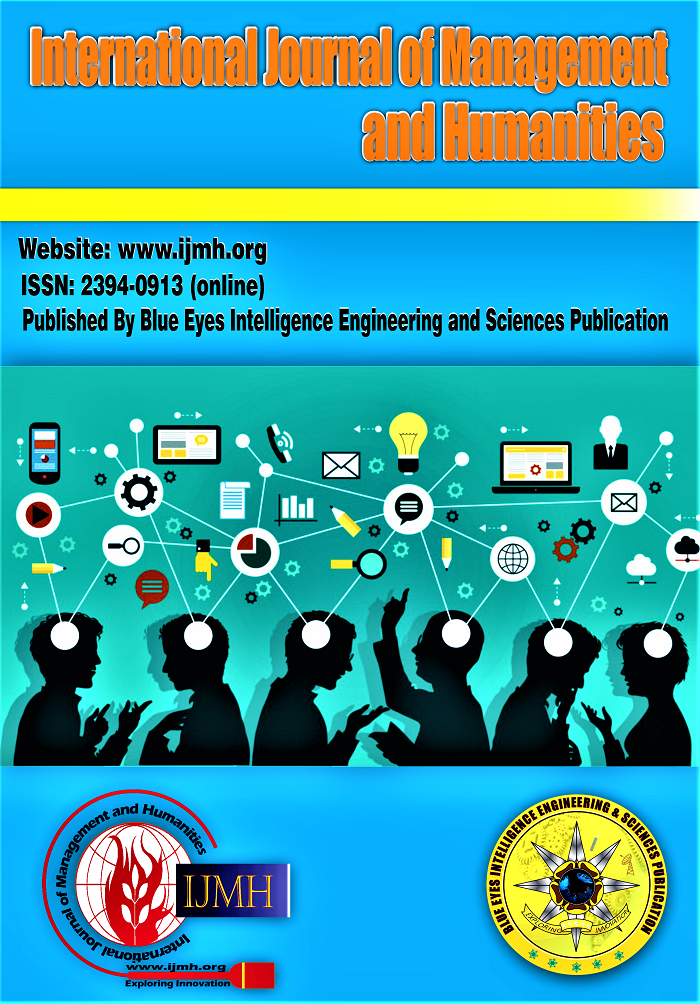The Effect of Effort and Result-Oriented Contracts on Human Resource Productivity: An Important Component of Sustainable Development Study of Dairy Farm in Iran
Main Article Content
Abstract
Human resource productivity is one of the essential components of the sustainable development of human resources. Human resource efficiency means the optimal use of people's capabilities, skills, knowledge, and experiences in society or organization. The sustainable development of human resources can be aided by raising productivity levels. The management of human resources systems and performance evaluation techniques may need help in evaluating the performance of employees under the influence of its complexities, which can cause inaccurate evaluation results. As a result, the organization will need help achieving the predetermined goals with proper productivity. Therefore, The present study examines the effect of effort and result-oriented contracts on the productivity of human resources in a 20,000-head state cattle farm in Iran. A comparative approach was used to investigate the effect of effort-based and result-based payments on human resource productivity. It analyzed ten projects in a set, where five were used for effort-based contracts and five similar projects used for results-based contracts. The findings of the study show that result-based contracts have a substantial impact on the productivity of labor in terms of effectiveness and efficiency. The study likewise discussed the implications of its results.
Downloads
Article Details
Section
How to Cite
References
Burke, J., Towry, K. L., Young, D., & Zureich, J. (2023). Ambiguous sticks and carrots: The effect of contract framing and payoff ambiguity on employee effort. The Accounting Review, 98(1), 139-162. https://doi.org/10.2308/TAR-2021-0345
Bardazzi, R., & Duranti, S. (2016). Atypical work: a threat to labor productivity growth? Some evidence from Italy. International Review of Applied Economics, 30(5), 620-643. https://doi.org/10.1080/02692171.2016.1165656
Dolado, J. J., & Stucchi, R. (2008). Do temporary contracts affect total factor productivity? Evidence from Spanish manufacturing firms. CEPR Discussion Papers, 7055. https://doi.org/10.2139/ssrn.1305816
Dai, Y., Kong, D., & Xu, J. (2017). Does fairness breed efficiency? Pay gap and firm productivity in China. International Review of Economics & Finance, 48, 406-422. https://doi.org/10.1016/j.iref.2017.01.003
Jirjahn, U. (2016). Performance Pay and Productivity: A Note on the Moderating Role of a High‐wage Policy. Managerial and Decision Economics, 37(7), 507-511. https://doi.org/10.1002/mde.2786
Mondello, M., & Maxcy, J. (2009). The impact of salary dispersion and performance bonuses in NFL organizations. Management Decision, 47(1), 110-123. https://doi.org/10.1108/00251740910929731
Mahamid, I. (2020). Study of the relationship between rework and labor productivity in Building Construction Projects. Revista de la construcción, 19(1), 30-40. https://doi.org/10.7764/rdlc.19.1.30-41
Korkmaz, S., & Korkmaz, O. (2017). The relationship between labor productivity and economic growth in OECD Countries. International Journal of Economics and Finance, 9(5), 71-76. https://doi.org/10.5539/ijef.v9n5p71
Osborne, D. and Gaebler, T., (1992). Reinventing Government: How the Entrepreneurial Spirit Is Transforming the Public Sector. Reading, MA: Addison-Wesley.
Sidemo-Holm, W., Smith, H. G., & Brady, M. V. (2018). Improving agricultural pollution abatement through result-based payment schemes. Land Use Policy, 77, 209-219. https://doi.org/10.1016/j.landusepol.2018.05.017
Hamza Nozari. (2018). Analysis of workers' experience and understanding of working conditions. Welfare and Social Development Planning Quarterly, Year 8, Number 31, Summer 2016.
Bonna, A.K., 2012. The impact of corporate governance on corporate financial performance (Doctoral dissertation, Walden University).
Ben‐Ner, A., & Jones, D. C. (1995). Employee participation, ownership, and productivity: A theoretical framework. Industrial Relations: A Journal of Economy and Society, 34(4), 532-554. https://doi.org/10.1111/j.1468-232X.1995.tb00387.x
Idehlu, H. A., Sadeghabad, A. J., & Pagheh, B. (2019). Increasing the efficiency and effectiveness of government organizations with the contracts of salary payment on the basis of consequence and outcome. International Journal of Innovative Technology and Exploring Engineering, 8(11), 2443-2445. https://doi.org/10.35940/ijitee.K1393.0981119
Gudarzi, Masoud, and Ataei, Morteza. (1388). The relationship between wages and productivity of human resources in the university. Industrial/Organizational Psychology News, 1(1), 71-76. SID. https://sid.ir/paper/177146/fa
Ouda, H. A. (2015). Results-based systems are the path towards results-oriented government. International Journal on Governmental Financial Management, 15(1), 46-69.
Rufus, O. S. (2023). Assessment of Enrolment Factors in Technical Education: Implication on Graduate Employability. In International Journal of Management and Humanities (Vol. 9, Issue 12, pp. 1–6). https://doi.org/10.35940/ijmh.l1648.0891223
Kammili, R. (2023). A Study on Technical Analaysis of Indian FMCG Sector. In Indian Journal of Economics and Finance (Vol. 3, Issue 2, pp. 8–20). https://doi.org/10.54105/ijef.a2541.113223
Chakrabarti, Prof. Dr. N. K., & Mitra, Dr. A. (2020). Civil Liability to Nanotechnology Products: An Appraisal with Special Reference to Strict Liability. In International Journal of Innovative Technology and Exploring Engineering (Vol. 9, Issue 8, pp. 673–676). https://doi.org/10.35940/ijitee.h6342.069820
Selvaraja, M., & Abdullah, Dr. A. (2019). Psychological factors effects on Propensity towards Indebtedness by applying the Behavioural Economic Theory: Evidence in Malaysia. In International Journal of Recent Technology and Engineering (IJRTE) (Vol. 8, Issue 4, pp. 11824–11830). https://doi.org/10.35940/ijrte.d9436.118419
Gupta, A., & Mehta, A. (2023). Nuptial Rape: Rape Within Marriage. In Indian Journal of Social Science and Literature (Vol. 3, Issue 1, pp. 6–11). https://doi.org/10.54105/ijssl.a1067.093123





